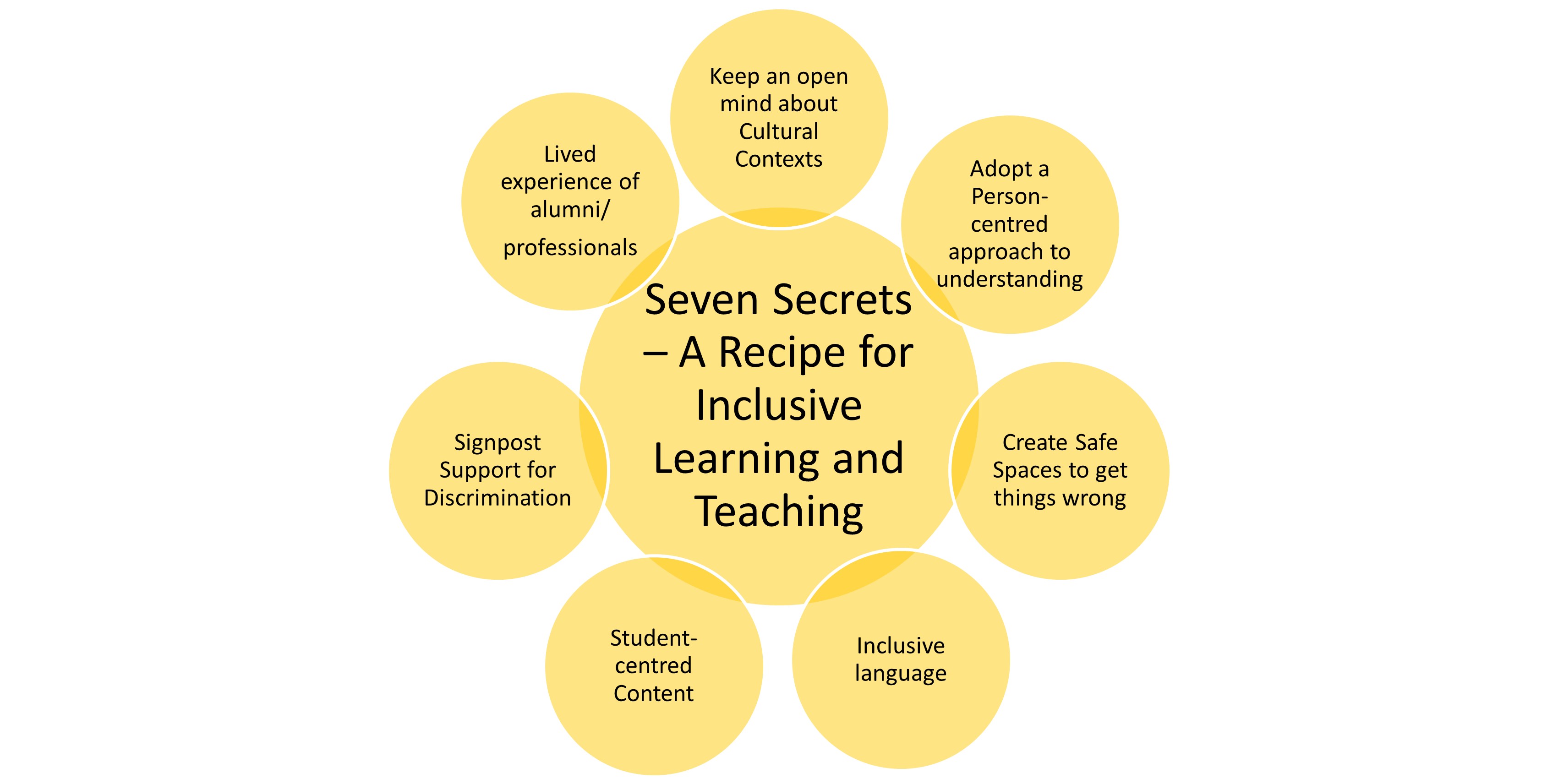Dr Nicoletta Fossati, Honorary Reader in Clinical Education and Anaesthesia has been leading a Student Advisor project working with students and colleagues on how to make sessions more inclusive. The team will work on implementing some of the findings. In the meantime here is some insightful wisdom adapted from the student advisors that deserves to be shared:

Teach more about the heterogeneity of people nowadays and that someone’s ethnicity/ancestry may not be their culture per say. Someone who has a South Asian Background, but born and raised in the Mediterranean eating only that food may not always have the same “ethnic risk” or may not relate to the culture surrounding their ethnicity but rather where they have grown up.
There is also the issue of people with a mixed ethnic background, understanding the blend of the culture that they may associate with and how that might affect their involvement with their own healthcare. Someone’s culture does not always correlate to their ethnic background and such clear distinguishing needs to be done to make sure information is correct and understandable.
Students need to feel that they are in a safe space to get things wrong without the fear being penalized by others. This can be done in small groups help students acknowledge the use of right terminology. This should also be introduced early on in the academic year to build up confidence in students and to develop a habit.
Sessions with inclusive language are important. Practice in a safe spot (actors?). Get students in the habit of using inclusive language.
Focus teaching on things students themselves are more concerned and interested in. This could be done at the start of the year wherein students would be asked to submit areas regarding equality and diversity they would wish to discuss as well as any areas of developing their professional identity they may be unsure of.
Share clearly outlined frameworks for how to handle issues regarding discrimination against oneself or a colleague in a clinical setting would help individuals feel more confident going into placement and overall better prepared.
This practice could be extended to individual teaching sessions as well so that at the end of the lecture/teaching activity students may feel their perspectives, concerns and ideas are important and heard when developing their own professional identities.
Interviews with alumni/professionals with protected characteristics where they explore how they navigated their studies and career and developed their own professional identity will help students to find their own way.
Student Advisors:
- Ranaa Taurobally
- Benjamin Barnes
- Maryam Saad
- Natasha Wollen
- Laurence Wilson
- Simranjeet Singh Grewal
- Lara Egendal
If you are interested in engaging student advisors in aspects of your learning and teaching practice, please contact studentadvisors@sgul.ac.uk